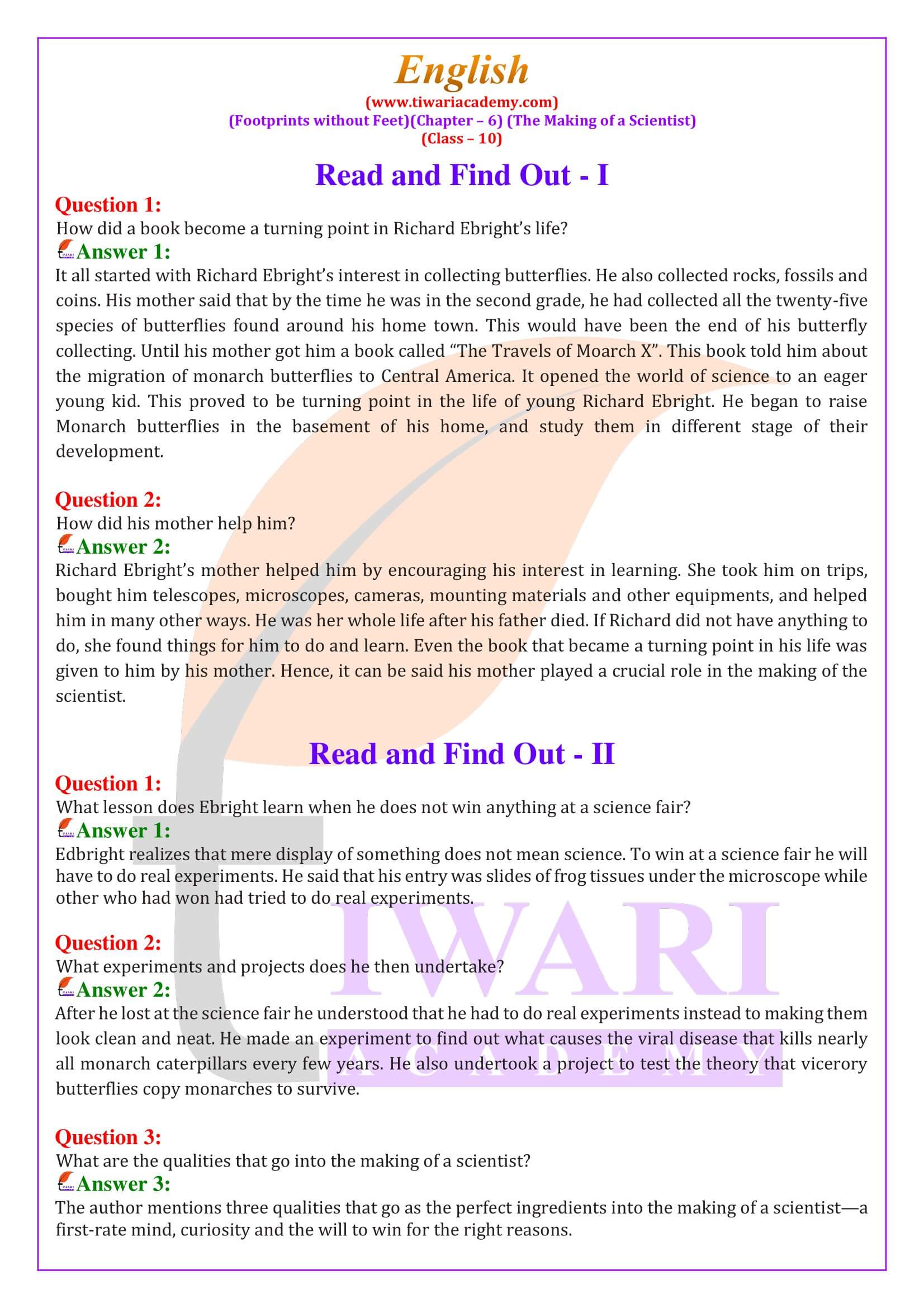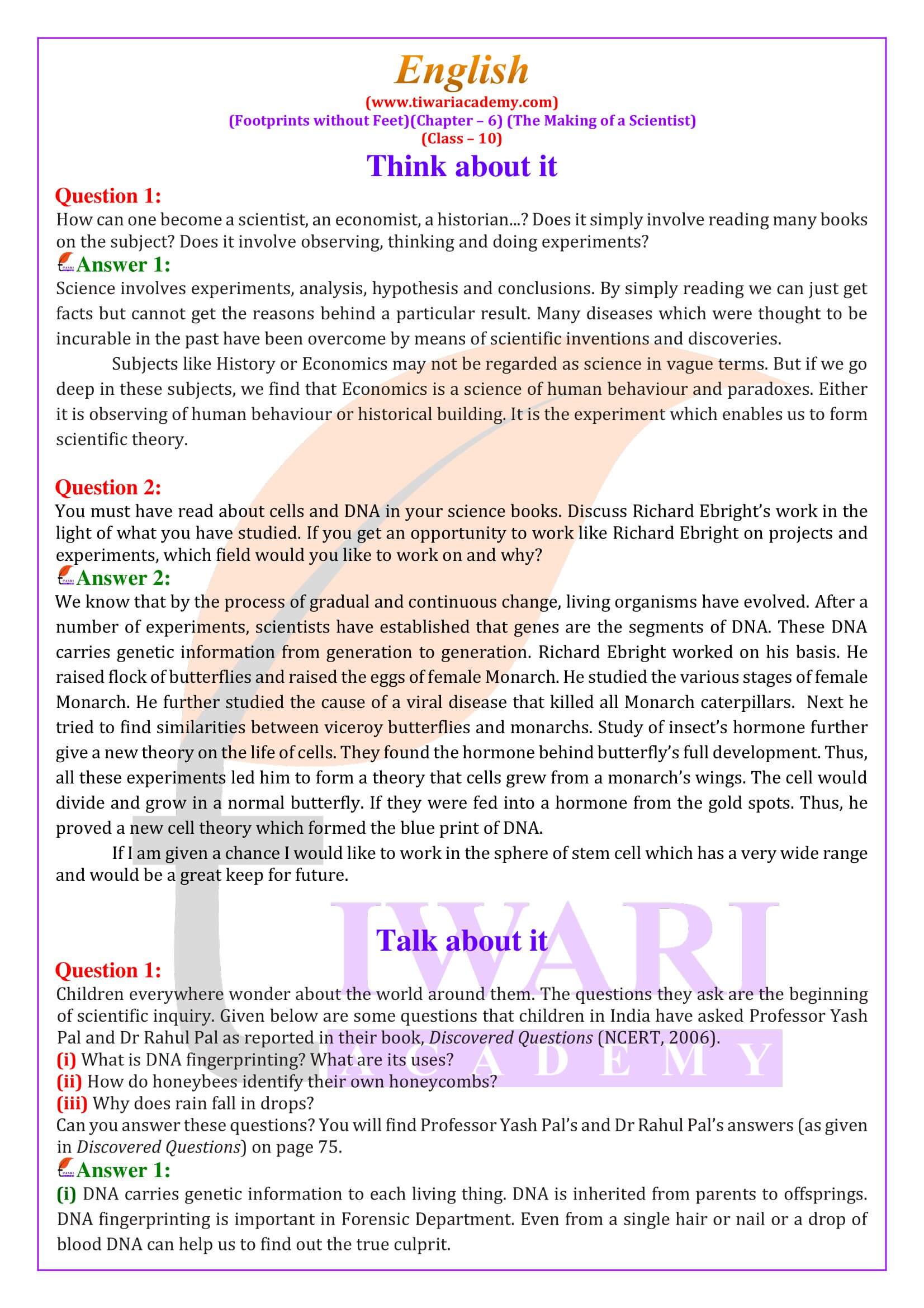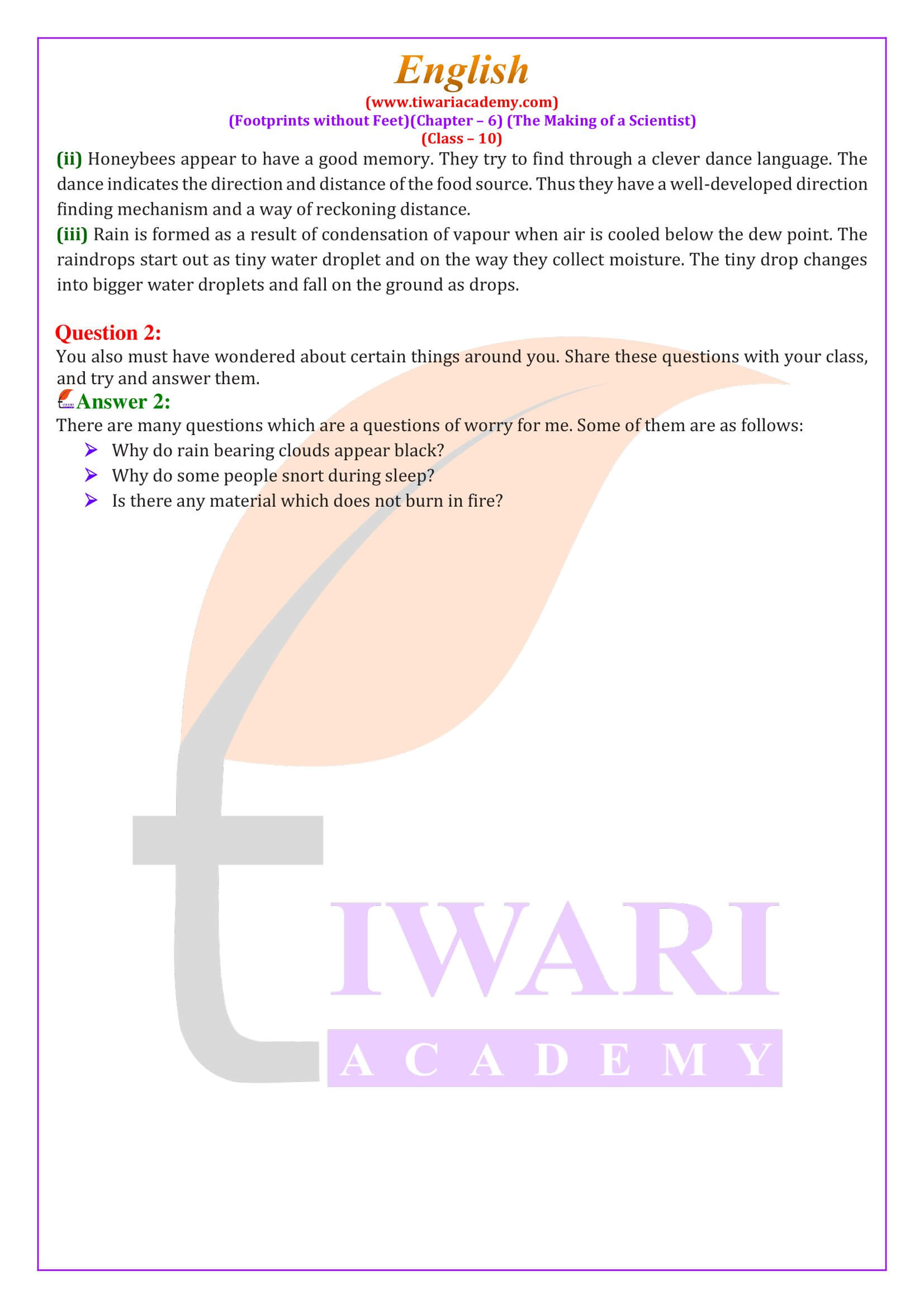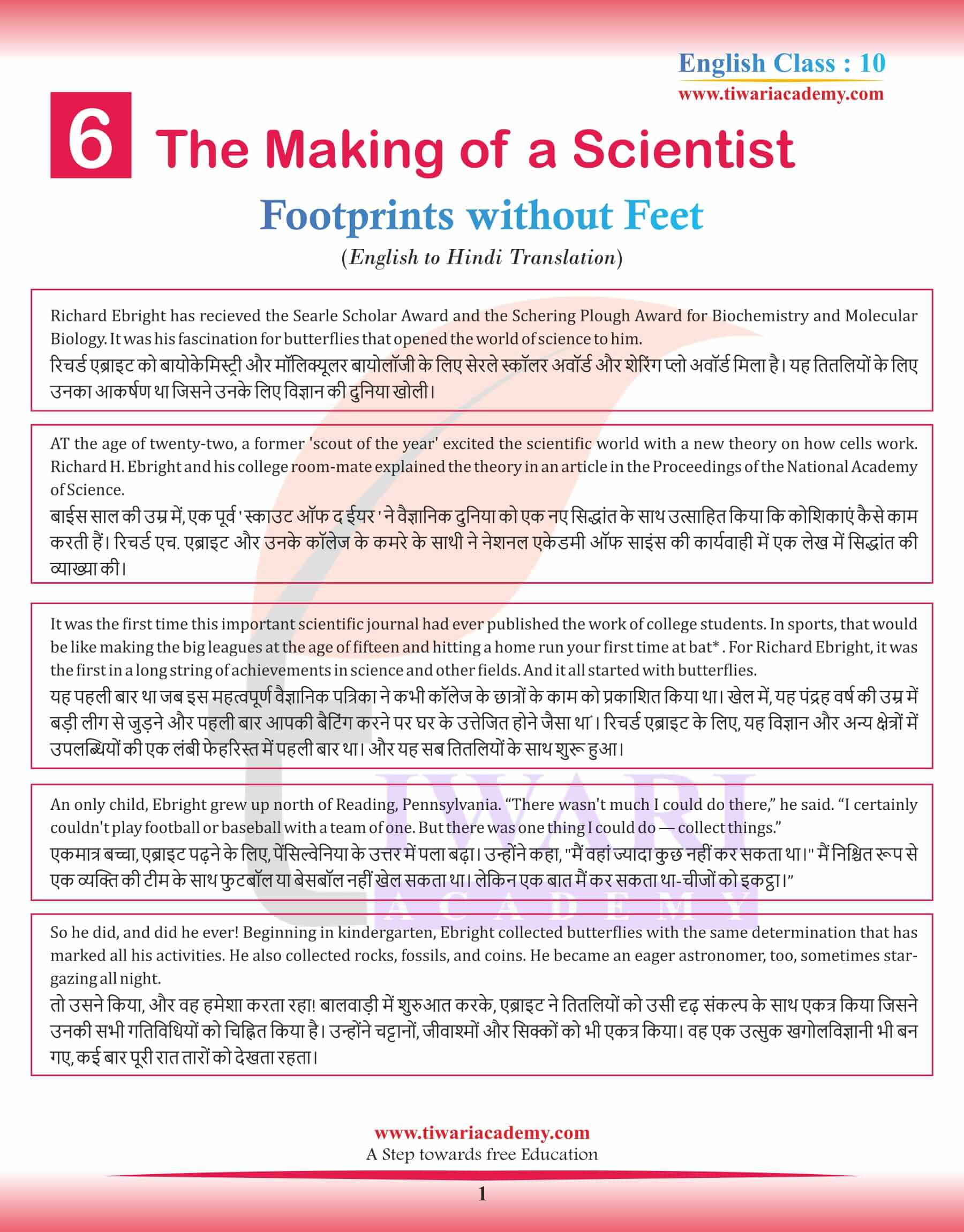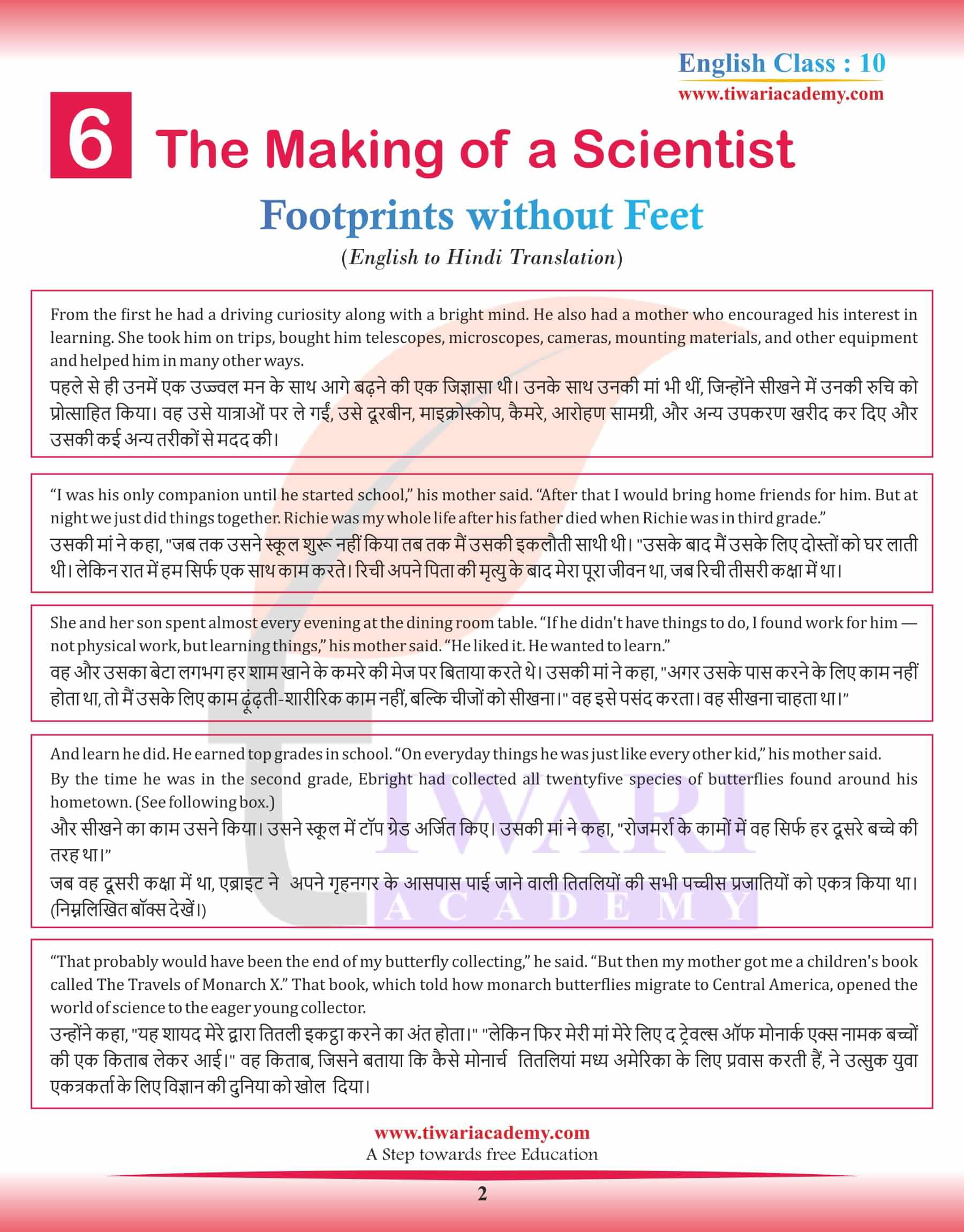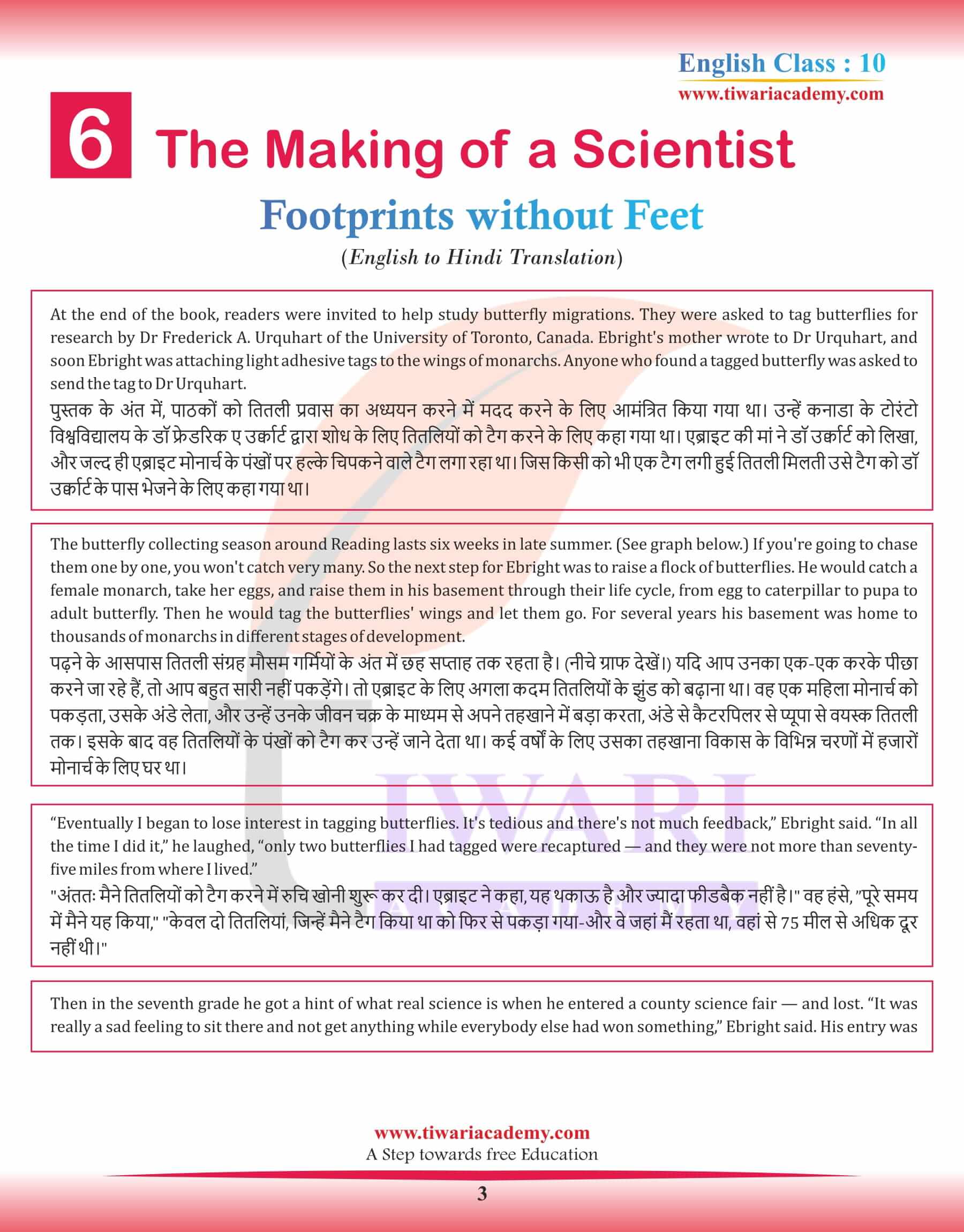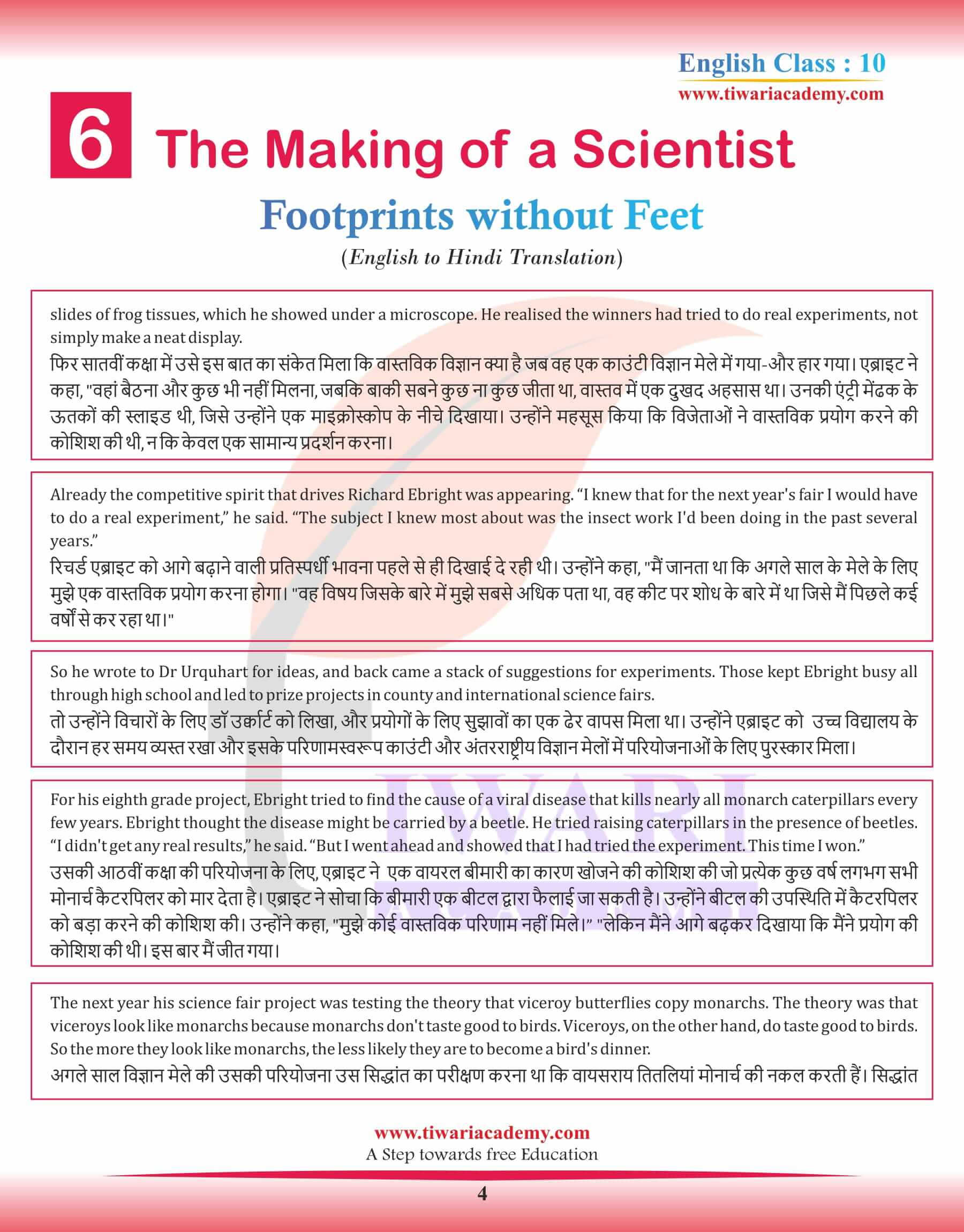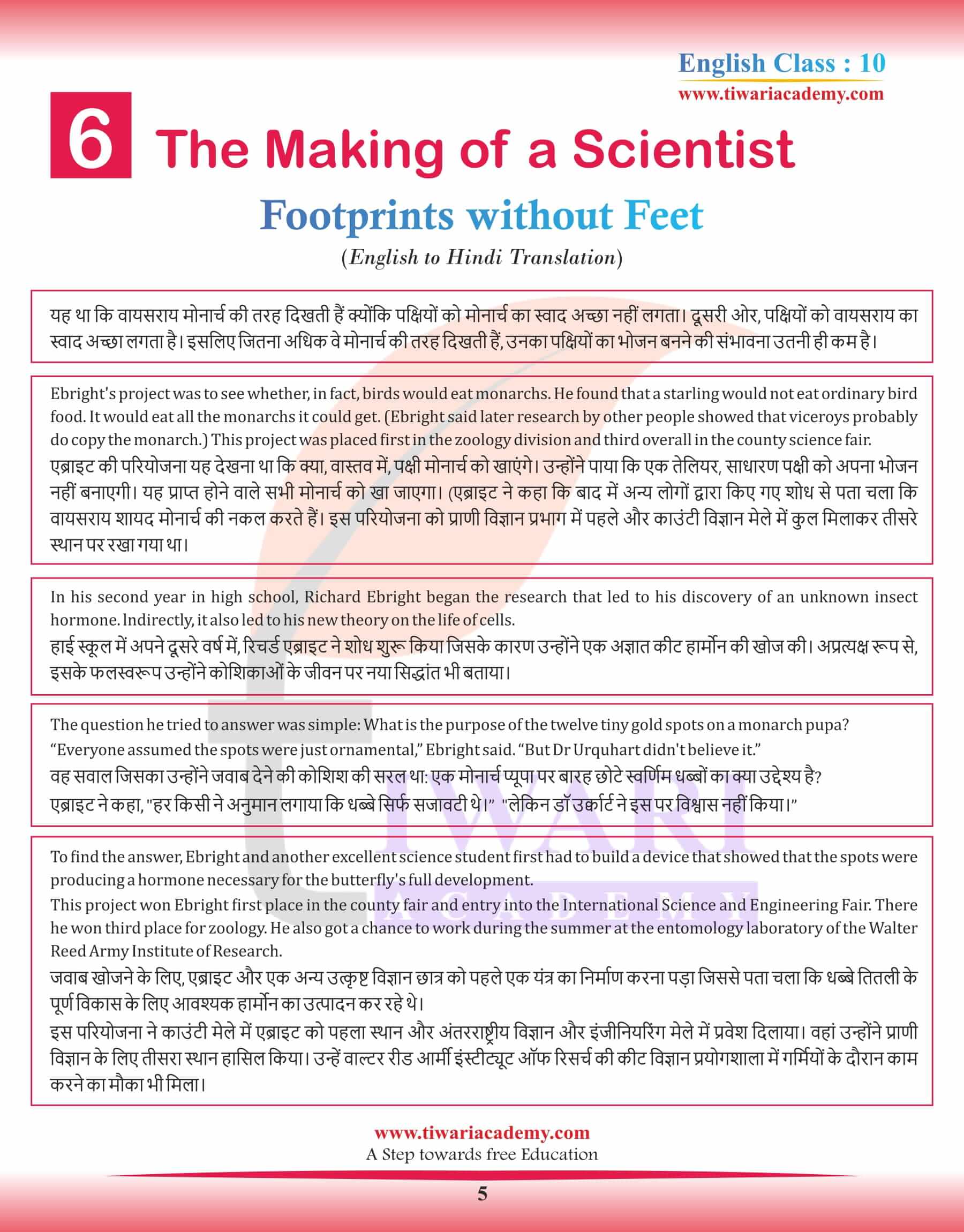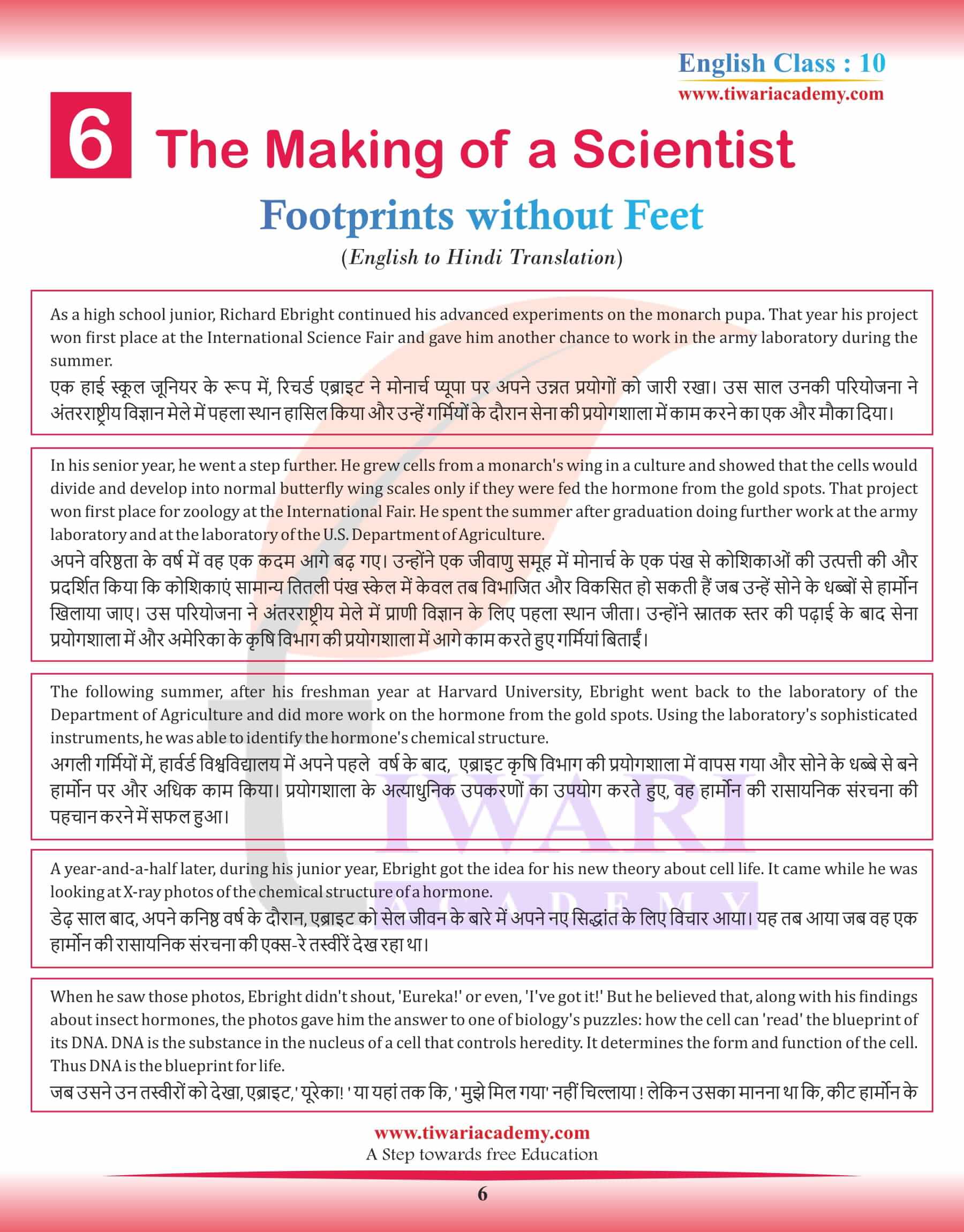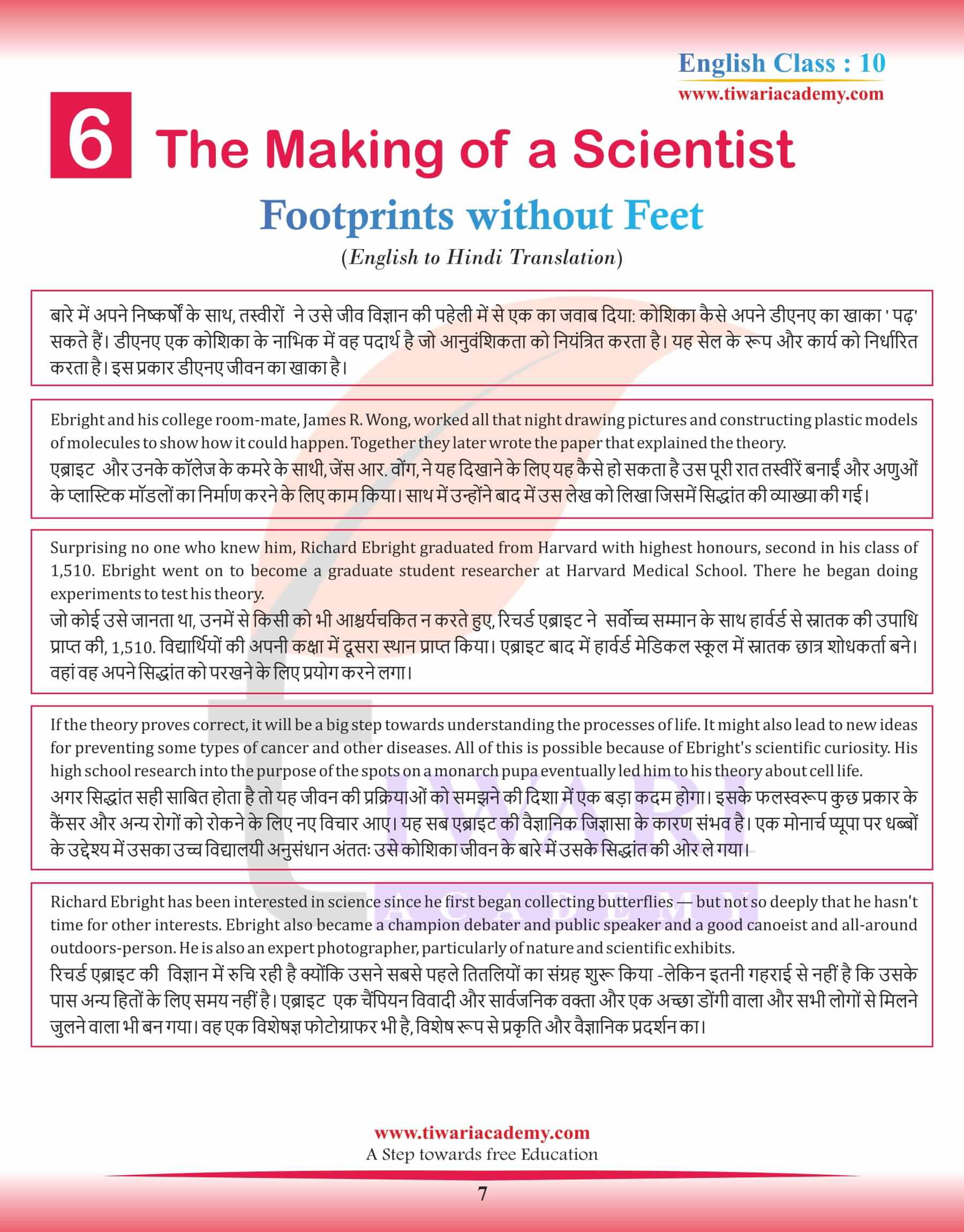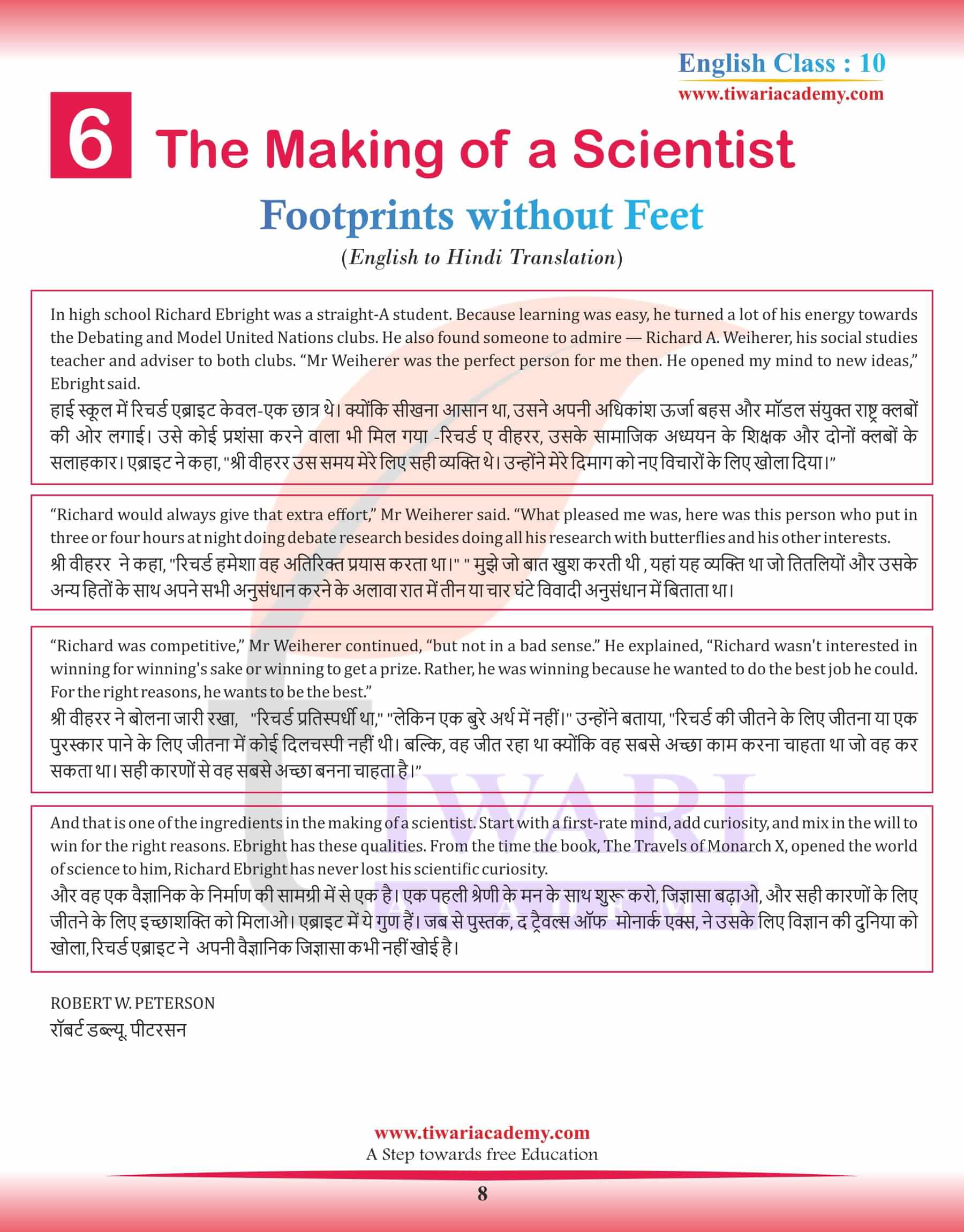NCERT Solutions for Class 10 English Supplementary Chapter 6 the Making of a Scientist. Get all the answers in simplified format. It is updated for academic session 2025-26 based on new rationalised NCERT books. The book contains a number of questions and exercises at the end of each chapter. This is important for the CBSE exams, as they often require students to write answers in a clear and concise manner. We work to reduce the pressure of study and trying to make it easy. Take help from Hindi Translation to understand the entire chapter.
NCERT Solutions for Class 10 English Supplementary Chapter 6 the Making of a Scientist
The Curious First Step
Twenty-two was the age of the scientist who please the world with the theory of how cells work. Richard H. Ebright and his University roommate explain the theory. In an article in Proceedings National Academy of Sciences. Published works of university students. It is like hitting a home run on the first shot for Richard Ebright. A series of advances in science and other fields. And it all started with butterflies. Ebright is an only child and grew up in the north of Reading, Pennsylvania. “There wasn’t much I could do there,” he said. “There was one thing I did can – collect things.”
So he did it and he always did! Starting in Kindergarten, Ebright, was like a Passionate astronomer, sometimes looking at the stars all night long. He collected butterflies collected with the same determination as to all others his activities. He had a keen curiosity and a clear mind his mother also encouraged him to learn. Taking him on trips buying binoculars, microscopes, cameras, composites, and other equipment. He helped him in many ways otherwise. “I was his only partner until he went to school,” said his mother.
The Hint of Real Science
In seventh grade, county science shows where he witnessed how real science experiments and not just showing slides. It was really sad. The feeling of sitting there and getting nothing. While everyone else is working something. Ebright showcased frog tissue under a microscope. They realized that the winners were trying to do the actual experiment. The competitive spirit that led Richard Ebright next year. He knew what an experiment. He wants he knew most about insects. So he wrote Dr. Urquhart for ideas, and he got a package Experiment Suggestion. This kept him busy Ebright has led award-winning projects in science exhibitions.
In eighth grade, Ebright tried to find the reason for a viral disease that kills nearly all Monarch larvae every few years. Ebright thought the beetle might carry disease. He tried butterfly growing in presence of the beetle. And didn’t get the result but showed that he had tried the Experiment. This time He won. The following year, He tested the theory the Viceroy Butterfly copies the Monarch. Monarchs are least tasty for birds and copying the monarchs makes the Viceroy butterfly. This Project 1st place in Zoology Division and 3rd place overall District Science Exhibition.
Step to Life Science
When he was in Second-year High school. He researched the important hormone yellow spots on pupa. That look like ornament secretes for the growth of the butterfly. This project won the first prize in the county fair. Third prize in zoology at Global Science and Engineering Fair. He also made a device that can show the yellow spots are producing hormones for pupa. This project won first prize and place to research further in the U.S. department of agriculture army research lab.
In Harvard’s lab, he was able to identify the cell structure in hormones yellow spots produce. Then in junior year, Ebright got the idea to see the hormone structure in X-ray photos. After seeing, the photos Ebright got the answers to how the cell can “read” the blueprints of its DNA. That controls the heredity and Thus, DNA is a blueprint of life. This is discovery the work towards life science. Along with friend James, he worked all night to make slides and plastic models. Wrote papers explaining the theory of how it could happen. He graduated with one of the highest honours from Harvard.
Learning New Skills
After completion of research he did not only stop there he started to learn new things like public speaking and Debates. He spends at least four hours preparing for debates. The competitive nature and practice. To become the best outdoor person and expert photographer for nature and canoeist too. Ebright explained that he was never interested in winning a prize. But want to do the best job for the right reason and how one book The Travels of Monarch X, changed his life.
